52 Must-Try Central European Semi-Hard Cheeses to Taste
Central European semi-hard cheeses represent a delightful culinary tradition steeped in generations of artisanal craftsmanship.
Passionate cheese makers carefully transform fresh milk into remarkable dairy treasures with distinctive textures and complex flavor profiles.
These regional specialties emerge from rolling landscapes where traditional techniques blend seamlessly with generational knowledge.
Smooth, dense wheels showcase nuanced characteristics that reflect local terroir and cultural heritage.
Robust and versatile, these cheeses offer remarkable complexity that tantalizes sophisticated palates and casual food enthusiasts alike.
Rich historical techniques transform simple ingredients into extraordinary gastronomic experiences that connect people through shared culinary traditions.
Regional variations demonstrate remarkable craftsmanship and commitment to preserving authentic cheesemaking methods: here are 45 exceptional semi-hard cheeses that will surprise you:
Which Central European Semi-Hard Cheese Types Should You Try?
Central Europe is a haven for semi-hard cheeses, known for their distinct textures and rich flavors. Discover varieties that have shaped regional traditions and cheese boards for centuries.
Redykoka
Redykoka cheese brings unique animal and heart-shaped designs from Poland's Podhale region, crafted from semi-hard sheep's milk.
Mountain shepherds create these small cheese sculptures weighing under 300 grams, with tiny spindle-shaped versions called redykolka ranging from 30 to 60 grams.
Polish shepherds traditionally make this cheese during the redyk ceremony, which marks seasonal sheep migrations to mountain pastures.
Skilled artisans transform leftover milk from making Oscypek cheese into these distinctive miniature forms.
Rural Polish cheesemakers carefully shape each piece to represent local cultural traditions.
Sheep milk provides a rich, slightly tangy flavor profile that distinguishes redykoka from other regional cheeses.
Production methods reflect generations of mountain farming expertise.
Shepherds consider these small cheese sculptures a meaningful representation of their pastoral heritage.
Tete De Moine
Tête de moine reveals complex Swiss cheese crafted by monks in Bellelay monastery with unique shaving techniques that intensify flavor profiles.
Swiss cheesemakers traditionally produce this semi-hard cylindrical cheese from cow's milk, aging it on spruce wood boards for at least two and a half months.
Monasteries originally developed this cheese as a payment method, transforming simple ingredients into a culinary treasure.
Girolle, a specialized tool, enables cheese enthusiasts to scrape thin cheese curls instead of cutting traditional slices.
Direct air contact during shaving alters cheese structure, releasing deeper aromatic notes and enhancing taste complexity.
Historical records suggest monks pioneered this distinctive cheese-making method centuries ago.
Sophisticated preparation techniques distinguish tête de moine from standard cheese varieties.
Cheese lovers appreciate its rich flavor and intricate presentation method that elevates the entire tasting experience.
Boerenkaas
Boerenkaas epitomizes authentic Dutch cheesemaking through its traditional farm-fresh production using unpasteurized milk directly from local animals.
Crafted as an artisanal product, this cheese distinguishes itself from mass-produced varieties by reflecting the unique character of each farm's livestock and agricultural environment.
Farmers create four distinct varieties including Goudse, Leidse, and Edammer using cow's milk, plus alternative versions made from goat, sheep, or buffalo milk.
Cheesemakers often enhance flavor profiles by incorporating seeds, herbs, and spices during production.
Raw milk sourcing means only a small percentage of Dutch cheeses qualify for the Boerenkaas designation.
Handmade techniques prioritize quality over quantity, transforming cheesemaking into a genuine art form.
Each wheel represents a connection between farmers, their animals, and generations of cheesemaking expertise.
Oscypek
Oscypek is a distinctive smoked cheese crafted from Polish mountain sheep milk in the Tatra highlands, boasting an unparalleled smoky profile that sets it apart from other regional cheeses.
Mountain shepherds create this spindle-shaped delicacy exclusively during summer months from May to September, using traditional techniques passed down through generations.
Polish shepherds carefully salt and smoke the unpasteurized milk, sometimes adding a small amount of milk from the local Podgorska red cow breed.
Regional artisans shape the cheese into intricate spindle forms that reflect generations of cultural craftsmanship.
Grilling transforms oscypek into a crispy exterior with a soft, rich interior that perfectly complements cranberry marmalade.
Its flavor profile combines saltiness with subtle chestnut undertones and a mild piquant character.
This traditional cheese represents the culinary heritage of Poland's southernmost Podhale region.
Shepherds in the Tatra mountains continue to produce oscypek using methods that honor their ancestral cheesemaking traditions.
Noord-Hollandse Gouda
Noord-Hollandse Gouda is a premium Dutch cheese with complex flavor profiles ranging from mild to intensely salty based on aging duration.
Originating from traditional cheesemaking practices in North Holland, this PDO-certified cheese uses exclusively local milk from regional cows.
Each cheese variety - from Jong to Extra oud - develops distinctive taste characteristics as it matures over time.
Graskaas represents the youngest, most delicate version with subtle creamy notes.
Older varieties like Extra oud deliver sharp, crystalline textures and concentrated umami undertones.
Despite its name suggesting Gouda town in South Holland, this cheese celebrates North Holland's dairy heritage.
Regional cheesemakers carefully craft each wheel using time-honored techniques passed through generations.
Cheese enthusiasts appreciate Noord-Hollandse Gouda for its nuanced flavors and rich cultural significance.
Slovensky Ostiepok
Slovensky ostiepok are distinctive Slovak sheep's milk cheeses handcrafted with generations of mountain farming expertise.
Mountain shepherds traditionally create these unique egg-shaped cheeses using half-fat sheep's or cow's milk in Slovakia's rugged regions.
Distinctive golden-brown exteriors result from careful smoking techniques that give each cheese its signature appearance.
Creamy yellow interiors reveal firm, homogeneous textures with delicate small cracks when sliced.
Cheese makers prepare ostiepok through both traditional farm methods and modern dairy production techniques.
Smoky flavors emerge from careful processing that preserves centuries-old cheesemaking traditions.
Regional Slovak shepherds often craft these cheeses on remote mountain farms called salas.
Industrial and artisan production methods ensure this special cheese remains an important part of Slovak culinary heritage.
Gouda
Gouda cheese dominates Dutch dairy exports with its distinctive yellow-orange color and creamy sweetness from cow's milk.
Crafted in characteristic flattened wheel shapes, these cheeses wear recognizable yellow and red waxy coatings that signal quality and tradition.
Aging transforms Gouda's flavor profile and texture, creating six distinct categories from young (4 weeks) to very old (12+ months).
Cheese experts appreciate how aging impacts taste, moving from mild and smooth to increasingly sharp and intense.
Dutch cheesemakers carefully press wheels into traditional molds, ensuring consistent shape and quality.
Expert aging techniques determine Gouda's final texture, ranging from semi-hard to hard.
Connoisseurs worldwide celebrate this cheese's complex flavor development over time.
International markets prize Gouda as a premium cheese with rich cultural heritage.
Gouda Holland
Gouda cheese represents Holland's dairy mastery with its distinct flavor profile that transforms from sweet and mild in young stages to complex and intense as it ages.
Crafted exclusively from Dutch cows' milk, this semi-hard cheese comes in a flattened wheel shape that charms cheese lovers worldwide.
Young Gouda offers fruity and butterscotch notes while mature versions develop deeper yellow colors and almost granular textures.
Sophisticated flavor nuances range from subtle fruit hints to unexpected undertones of cocoa and groundnuts.
Netherlands farmers carefully produce this cheese using traditional methods that ensure rich, smooth characteristics.
Smooth textures complement its complex taste profile, making it perfect for sandwiches and snack platters.
Cheese enthusiasts appreciate Gouda's versatility in cooking and as a standalone delicacy.
Worldwide popularity confirms its exceptional quality and remarkable flavor depth.
Beemster Classic
Beemster Classic stands out as an award-winning Dutch cheese aged to perfection with intense flavor complexity.
Made from cow's milk, this semi-hard cheese develops a smooth, firm texture during its minimum 18-month aging process.
Boasting strong, rich aromas, the cheese delivers salty and sharp notes reminiscent of burnt caramel with a surprising sweet finish.
Acclaimed internationally, Beemster earned a Super Gold medal at the 2014 World Cheese Awards and ranks among the bestselling cheeses in the United States.
Sandwich lovers appreciate its robust profile, while wine enthusiasts recommend pairing it with Malbec or full-bodied white wines.
Craft beer fans also enjoy its complementary taste with hoppy and bitter brews.
Beneath its natural rind, the cheese promises a deeply satisfying sensory experience.
Cheese connoisseurs consistently praise Beemster Classic for its exceptional quality and distinctive character.
Maasdam
Maasdam cheese brings Dutch dairy craftsmanship to life through its distinctive large holes and creamy texture.
Developed in the early 1990s as an affordable alternative to Swiss Emmental, this semi-hard cow's milk cheese offers a mild and complex flavor profile.
Nutty and sweet undertones define its character, complemented by fruity aromas that dance across the palate.
Fat content reaches a generous 45%, ensuring rich and smooth consistency.
Cheese makers carefully age Maasdam between 4 to 12 weeks, allowing its unique characteristics to develop fully.
Versatile by nature, this cheese melts beautifully in soups and casseroles while also serving as a perfect snacking option.
Its waxed rind protects the supple interior, creating an inviting appearance for cheese enthusiasts.
Sandwiches and light meals benefit from Maasdam's gentle yet distinctive taste.
Radamer
Radameris showcases Poland's innovative cheese-making prowess as the country's first holey cheese crafted by Spomlekdairy.
Polish cheesemakers expertly blend Dutch and Swiss cheese-making techniques to create this unique dairy product.
Cow's milk from the Polesie region forms the base of this pale yellow cheese.
Cherry-sized holes punctuate the cheese's smooth surface, giving it a distinctive appearance.
Artisan producers carefully select premium local milk to ensure high-quality flavor.
Traditional cheese-making methods merge with modern techniques during production.
Each wheel represents a careful balance of cultural cheese-making traditions.
Cheese enthusiasts appreciate Radameris for its smooth texture and authentic Polish origins.
Ser Korycinski Swojski
Ser korycinski swojski radiates Polish culinary heritage through its distinctive spherical shape crafted in traditional strainers from Sokolski County.
Local cheesemakers carefully produce this regional delicacy using unpasteurized, full-fat cow's milk with meticulous attention to ripening techniques.
Small holes pepper its creamy yellow interior, giving the cheese a unique textural complexity.
Weight ranges between 2.5 to 5 kilograms, allowing for substantial servings of this traditional product.
Flavor profiles transform dramatically during aging, starting mild and creamy when fresh.
Mature stages develop progressively saltier and nuttier characteristics that deepen with extended ripening.
Podlaskie Province proudly claims this cheese as a signature regional specialty, representing generations of agricultural craftsmanship.
Generations of Polish farmers have perfected this cheese's production, maintaining authentic techniques passed down through family traditions.
Postel
Postel is a Belgian monastic cheese with intense, complex flavors that develop during lengthy aging.
Belgian monks at the Abbey of Pastel created this distinctive hard cheese from pasteurized cow's milk.
Nutty undertones emerge powerfully after 12 to 24 months of careful maturation.
Subtle hints of nutmeg and cloves weave through its dry, crumbly texture.
Cheese enthusiasts appreciate its robust profile that grows more pronounced with time.
Monks carefully craft each wheel using traditional techniques passed down through generations.
Production occurs exclusively at the original abbey, maintaining authentic methods.
Regional Belgian cheesemaking traditions shine through in this exceptional dairy product.
Tolminc
Tolminc cheese are traditional Slovenian mountain delicacies crafted exclusively in the Upper Soca Valley municipalities of Tolmin, Kobarid, and Bovec.
Mountain-dwelling Cika cows, a smaller brown piebald breed perfectly adapted to highland pastures, provide at least 80% of the raw milk used in production.
Wheels weighing between 3.5 and 5 kilos mature for a minimum of two months, developing a complex flavor profile ranging from sweet to slightly spicy.
Local producers follow strict geographical guidelines ensuring authentic preparation methods.
Shepherds carefully select milk from cows grazing in specific alpine regions, contributing to the cheese's distinctive earthy aroma.
Generations of cheesemakers have refined this semi-hard cheese, earning multiple international awards for its exceptional quality.
Regional traditions and unique environmental conditions shape Tolminc's remarkable taste and texture.
Slovenian cheese enthusiasts consider this variety a true representation of mountain culinary heritage.
Bovski Sir
Bovski sir represents a distinctive Slovenian sheep milk cheese originating from Slovenia's alpine Bovec region.
Mountain shepherds carefully craft this semi-hard cheese exclusively from milk produced by Bovska ovca sheep raised in the narrow Valley of Loska Koritnica, Krnica, and Mangart mountain areas.
Strict production requirements mandate at least 80% sheep milk content in each wheel.
Traditional cheesemakers create wheels weighing between 2.5 and 4.5 kilos with a characteristic dense, brittle texture that breaks cleanly.
Beige in color, the cheese features small, evenly distributed eyes and occasional natural cracks.
Its firm rind ranges from soft beige to grey-brown, reflecting the unique alpine environment.
Connoisseurs appreciate Bovski sir for its authentic connection to Slovenia's pastoral shepherding heritage and distinctive regional flavor profile.
Noord-Hollandse Edammer
Noord-Hollandse Edammer are distinctive spherical cheeses crafted exclusively from cow's milk in North Holland's lush pastures, boasting a unique flavor profile that sets them apart from other Edam varieties.
Local farmers have produced this cheese since medieval times, using traditional techniques that preserve its authentic character.
Sporting a signature red wax coating, these cheeses develop a firmer texture as they age, becoming more complex in taste.
Cheese makers carefully craft each wheel with a flat top and bottom, following time-honored preparation methods.
Low salt content distinguishes Noord-Hollandse Edammer from similar regional cheeses, creating a milder flavor profile.
Recognized with a Protected Designation of Origin (PDO) certificate, this cheese represents the culinary heritage of its hometown, Edam.
Museum exhibits featuring historic cheese presses demonstrate the long-standing importance of this dairy product in North Holland's agricultural tradition.
Skilled artisans continue to produce Noord-Hollandse Edammer using techniques passed down through generations, ensuring its exceptional quality and cultural significance.
Emmentaler
Emmentaler cheese bursts with distinctive marble-sized holes that transform its pale yellow surface into a Swiss masterpiece.
Swiss cheesemakers craft this semi-hard delicacy from unpasteurized cow's milk, carefully aging it for at least 4 months to develop complex flavors.
Nutty and tangy aromas reminiscent of fresh hay define its unique taste profile, making it a favorite among cheese enthusiasts.
Chefs worldwide love incorporating Emmentaler into classic dishes like fondue, where its smooth texture melts perfectly.
Slicing or cubing the cheese reveals its characteristic holes, creating visual and gustatory appeal.
Traditional production methods ensure each wheel maintains high-quality standards.
Maturation times can extend beyond 4 months, intensifying its rich flavor characteristics.
Switzerland proudly celebrates this cheese as a culinary treasure recognized globally for its exceptional taste and distinctive appearance.
Hollandse Geitenkaas
Hollandse geitenkaas are traditional Dutch goat cheeses with a distinctive mild, clean flavor crafted exclusively from Dutch White Goat milk.
Netherlands cheesemakers carefully produce this semi-hard white cheese using pasteurized cream or whole, semi-skimmed, or skimmed milk from specific goat breeds.
Cheese experts ripen the wheels for a minimum of four weeks, developing its signature smooth taste profile.
Fat content ranges between 50% and 60%, creating a balanced texture that melts smoothly on the palate.
Artisan producers can age the cheese in open air, which creates a dry rind, or use foil ripening to preserve its young, delicate characteristics.
It's more special particularly when paired with chilled white or dry rosé wines.
Boeren-Leidse Met Sleutels
Boeren-Leidse met Sleutels exemplifies Holland's rich cheese-making heritage with its distinctive cumin-infused profile.
Originating in South Holland's Leiden region, this semi-hard farm cheese belongs to the renowned Gouda family.
Dutch artisan cheesemakers craft this cheese using traditional methods that highlight its complex flavor spectrum.
Winning the top prize at the 2010 Dutch Artisanal Contest, the cheese impresses with its multilayered taste journey from fruity notes to spicy undertones.
Cumin seeds provide a signature aromatic element that distinguishes this cheese from other regional varieties.
Walnut and almond hints emerge in its finish, creating a nuanced sensory experience.
Cheese enthusiasts appreciate its piquant character and deep cultural significance.
Local farmers have perfected this recipe over generations, ensuring each wheel represents generations of cheesemaking expertise.
Leerdammer
Leerdammer cheese bursts with smooth, springy textures and mild, sweet nutty flavors crafted by Dutch cheesemakers Cees Boterkooper and Bastiaan Baars in 1977.
Netherlands dairy experts originally developed this distinctive cow's milk cheese in Schoonrewoerd before moving production to Leerdam, which inspired its iconic name.
Creamy and open-textured, Leerdammer offers a balanced profile that appeals to cheese enthusiasts seeking a gentle yet rich taste experience.
Mild sweetness characterizes its flavor, complemented by subtle nutty undertones that distinguish it from other Dutch cheeses.
Smooth consistency allows Leerdammer to melt beautifully, making it perfect for sandwiches, cooking, and cheese platters.
Cow's milk provides the fundamental ingredient, ensuring a pure and authentic dairy product.
Cheesemakers carefully craft each wheel to maintain consistent quality and texture.
Regional traditions of Dutch cheesemaking shine through in every slice of this beloved national specialty.
Edam Holland
Edam cheese represents Holland's rich dairy heritage with its distinctive round shape and remarkable aging potential.
Crafted exclusively in Dutch farms using fresh cow's milk, this semi-hard cheese boasts a mild flavor profile that transforms from sweet to piquant as it matures.
Strict production guidelines ensure each wheel receives a unique identification number stamped on its classic red wax coating.
Calcium-rich and versatile, Edam slices effortlessly for sandwiches, sauces, and soups.
Dutch cheesemakers carefully age this cheese, allowing its texture to become progressively firmer and tighter.
Its rubbery consistency and smooth melting properties make it a favorite among cheese enthusiasts worldwide.
Naturally matured like its cousin Gouda, Edam maintains its quality without spoiling, reflecting centuries of Dutch cheesemaking expertise.
Food lovers appreciate this cheese for its consistent flavor and adaptable culinary applications.
Jihoceska Niva
Jihoceska Niva are distinctive blue Czech cheese crafted from cow's milk with intense blue-green mould penetrating its creamy interior.
Originating in South Bohemia since 1951, this regional speciality weighs around 2.8 kilograms and features a semi-waxy washed rind.
Cheese makers carefully pierce the cheese with needles, allowing blue-green mould to spread through its pale yellow matrix.
Its crumbly yet semi-soft texture delivers a complex profile of sharp and salty flavours.
Experienced cheese lovers appreciate its pungent aroma and rich character.
Traditional production methods ensure consistent quality across each wheel.
Expert craftsmanship transforms simple milk into a remarkable Czech culinary treasure.
Connoisseurs recognize Jihoceska Niva as a premium blue cheese with deep regional significance.
Swiss Tilsit
Swiss Tilsit radiates bold cheese-making expertise with its distinctive washed rind and complex flavor profile.
Originating in Switzerland's Emmental Valley, this cheese emerges from cow's milk through three distinct production methods.
Farmhouse Tilsit, crafted from raw milk, delivers a more intense taste compared to its milder pasteurized counterpart.
Cream-enhanced versions add another layer of richness to the cheese's character.
Aged for five months, Tilsit develops strong, pungent aromas that excite cheese enthusiasts.
Its firm yet springy texture features characteristic cheese eyes scattered throughout the wheel.
Flavor variations range from creamy and mild to sharp and spicy.
Cheese lovers appreciate Tilsit's versatility in culinary applications and its deep connection to Swiss dairy traditions.
Jihoceska Zlata Niva
Jihoceska Zlata Niva is a distinctive blue cheese originating from South Bohemia, Czech Republic, renowned for its bold flavor profile and unique mould-infused character.
Crafted from local cow's milk, this round cheese features a washed rind adorned with striking blue-green mould across its semi-waxy exterior.
Penicillium roqueforti treatment creates distinctive needle prickings throughout its creamy white to pale yellow interior, giving the cheese its signature appearance.
Cheese lovers appreciate its pasty texture, which is lighter compared to similar blue cheese varieties.
Salty and pungent aromas define its intense flavor, making it a standout among blue cheese enthusiasts.
Weighing approximately 2.8 kilograms, Zlata Niva maintains its traditional wheel shape during production and sale.
Local cheesemakers carefully culture the cheese to develop its aromatic and robust characteristics.
Regional traditions and precise production methods contribute to this exceptional South Bohemian cheese's distinctive quality.
Tekovsky Salamovy Syr
Tekovsky salamovy syris dazzles cheese enthusiasts with its distinctive salami-like cylindrical shape and unique Slovak heritage.
Crafted in the picturesque lowland region between Nitra and Banska Bystrica since 1949, this semi-hard cheese emerges from pasteurized, full-fat cow's milk.
Skilled cheesemakers carefully salt and dry the cheese, creating two primary varieties: smoked and unsmoked.
Small holes punctuate its smooth, elastic texture when sliced, adding visual interest to the cheese.
Slovak cheesemaking traditions shine through its carefully developed production methods.
Wine-growing regions contribute to the cheese's rich cultural background.
Local producers continue generations of expertise in creating this exceptional cheese.
Each cylinder represents a delicious slice of Slovak culinary tradition.
Holsteiner Tilsiter
Holsteiner Tilsiter is a distinctive semi-hard cheese originating from Germany's Schleswig-Holstein region with unique caraway-spiced characteristics.
Regional production regulations ensure the cheese maintains its authentic flavor profile and traditional manufacturing methods.
Crafted from raw or pasteurized cow's milk, this cheese develops a thin yellow-brown rind and light-yellow interior with signature eyes and subtle cracks.
Cheese makers carefully age Holsteiner Tilsiter to create flavor variations ranging from mild and aromatic to sharp and intense.
Wheel or loaf-shaped, the cheese boasts a supple and springy texture that appeals to cheese enthusiasts.
Dating back to the late 19th century, this regional specialty reflects German cheesemaking heritage.
Each wheel represents a careful balance of traditional techniques and local agricultural practices.
Connoisseurs appreciate its complex flavor progression and distinctive regional identity.
Hirtenkase
Hirtenkaese stands out as a rich German mountain cheese from Allgau that blends complex flavor profiles with distinctive dairy characteristics.
Cow's milk gives this hard cheese its signature texture and robust taste experience.
Aged carefully, Hirtenkaese develops aromas reminiscent of orange peel and smooth butterscotch notes.
Cheese enthusiasts appreciate its unique profile that bridges aged Gouda and Parmigiano-Reggiano styles.
Waxy surfaces and milky undertones create a memorable sensory journey for food lovers.
Regional craftsmanship ensures each wheel maintains traditional production methods.
German cheesemakers select premium milk to develop intense flavor nuances.
Alpine mountain environments contribute to the cheese's exceptional quality and depth of character.
Edelpilz
Edelpilz embodies the rich, creamy essence of German blue cheese with its distinctive tangy flavor and smooth texture.
Crafted from pasteurized cow's milk, this cheese boasts a 22% fat content that ensures a luxurious mouthfeel.
Professional cheesemakers carefully introduce blue mold cultures that create signature blue-green veins throughout the cheese's pale interior.
Mild yet sharp notes dance across the palate, making Edelpilz a versatile cheese for both cooking and snacking.
Its semi-soft consistency allows for easy slicing and melting, perfect for sandwiches or gourmet cheese boards.
German cheese artisans age this blue cheese to develop its complex flavor profile, balancing saltiness with subtle earthy undertones.
Gourmets appreciate its softer rind and creamy consistency compared to more intense blue cheese varieties.
Sophisticated food lovers often pair Edelpilz with crisp white wines or dark rye bread to complement its nuanced taste.
Mondseer
Mondseeris a distinctive Austrian cheese with a creamy texture and pale yellow hue crafted in the namesake town of Mondsee.
Skilled cheesemakers produce this semi-hard specialty using pasteurized cow's milk from local alpine herds.
Regional dairy traditions shape its unique character, with a smooth and open interior that promises rich flavor.
Cheesemakers carefully wash the rind during production, enhancing its complex taste profile.
Austria's alpine pastures contribute to the cheese's exceptional quality and nuanced flavor notes.
Local dairy farmers take pride in maintaining traditional cheesemaking methods passed through generations.
Regional climate and grazing conditions significantly influence the cheese's distinctive taste.
Mondsee cheese represents a genuine reflection of Austrian dairy craftsmanship and culinary heritage.
Klenovecky Syrec
Klenoveckysyrec is a cherished Slovak sheep or cow milk cheese boasting a distinctive four-leaf clover embossed surface and soft green-tinted rind.
Originating in the mountainous Gemer-Malohont region since 1850, this semi-hard cheese embodies traditional Slovak dairy craftsmanship.
Skilled cheesemakers create Klenoveckysyrec through methods ranging from rustic shepherd's hut production to modern industrial processes.
Weighing between one and four kilograms, the cheese offers versatility in both smoked and unsmoked varieties.
Cheesemakers carefully craft its exterior with wood ash for a unique green coloration.
Its interior reveals a white to pale yellow palette with an elastic texture punctuated by tiny holes when sliced.
Lovers of artisan cheeses appreciate its rich cultural heritage and distinctive preparation techniques.
Each wheel represents a piece of Slovak culinary tradition carefully preserved through generations.
Alps Rebel
Alps Rebelis represents a distinctive Austrian cheese with rich mountain pasture origins that deliver exceptional flavor complexity.
Mountain cows grazing on diverse alpine herbs create unique milk profiles for this artisan cheese.
Sulzberger Kaserebellen Sennerei carefully produces this raw milk cheese in Sulzberg using traditional techniques.
Rustic natural rinds protect a semi-hard interior with open, creamy textures that melt smoothly on the palate.
Local farmers select specific corn and dried hay diets for their cattle to enhance milk quality.
Regional alpine herbs contribute subtle nuanced taste dimensions to the cheese's profile.
Skilled cheesemakers monitor aging processes to ensure consistent premium characteristics.
Small-batch production guarantees authentic regional cheese traditions.
Echte Loo
Echte Loois a traditional Belgian cheese renowned for its distinctive black rind and creamy texture crafted from an ancient monastic recipe.
Monks at Abbey Lo developed this semi-hard cow's milk cheese centuries ago with meticulous care and precision.
Belgian cheesemakers continue the time-honored technique, creating a mild-flavored delicacy that reflects regional culinary heritage.
Artisan producers carefully age the cheese to develop its smooth, rich profile and dark exterior.
Local farmers contribute high-quality milk that ensures the cheese's consistent quality and unique characteristics.
Regional traditions and strict production methods preserve the authentic flavor of this historic cheese.
Cheese enthusiasts appreciate its subtle taste and cultural significance in Belgian gastronomy.
Belgian restaurants and specialty shops frequently feature Echte Loois as a prized example of traditional cheesemaking.
Pinzgauer Bierkase
Pinzgauer Bierkase is a distinctive Austrian cheese soaked in beer that creates a unique reddish rind and tangy flavor profile.
Originating in the 17th century, this semi-hard cow's milk cheese comes from the Zell am See district's Alpine pastures.
Cows grazing on mountain meadows provide milk that transforms into a cheese with exceptional character.
Pasteurization and lactobacteria culture enhance the cheese's complexity.
Cheesemakers carefully press the curd and wrap it in beer-soaked cloths, which contribute to its signature color and taste.
Alpine plant notes subtly emerge through the cheese's light-yellow body.
Small perforations dot the surface, adding visual interest.
Traditional production methods remain unchanged, preserving the cheese's authentic regional heritage.
Balaton
Balaton cheese stands out as a classic Hungarian dairy product crafted from smooth cow's milk around Lake Balaton's scenic region.
Local cheesemakers shape this specialty into distinctive loaves with distinctive characteristics.
Small distinctive eyes pepper its semi-hard interior, creating visual intrigue throughout the cheese's compact structure.
Traditional production methods ensure a natural greasy rind protects its firm texture.
Regional artisans carefully age this cheese to develop complex flavor profiles appreciated by dairy enthusiasts.
Hungarian culinary traditions celebrate Balaton cheese as a regional specialty representing local agricultural expertise.
Mild yet distinctive taste makes this cheese perfect for sandwiches and cheese boards.
Generations of Hungarian families have enjoyed this unique lake-named cheese as a staple of their regional cuisine.
Bratkase
Bratkase is a Swiss cheese treasure from Unterwalden that melts with rustic charm and historical cooking traditions.
Mountain farmers developed this semi-hard cheese with a unique preparation method involving direct fire heating.
Swiss cheesemakers craft each wheel between 750 grams and 1.1 kilograms, producing a mild and slightly tangy flavor profile.
Fire-roasting transforms the cheese surface into a scrape-able delicacy, which explains its name meaning "fried cheese" in local dialect.
Regional producers carefully create this specialty using traditional techniques passed through generations.
Expert cheesemakers heat the cheese over open flames, softening its exterior for a distinctive taste experience.
Swiss culinary heritage shines through this regional delicacy that connects modern food lovers with alpine cooking practices.
Visitors to Obwalden and Nidwalden cantons can sample this authentic Swiss cheese specialty that represents mountain cooking traditions.
Landle Rheintaler
Landle rheintaler ranks among Switzerland's most distinctive alpine cheeses, boasting a rich flavor profile that balances smooth texture with subtle spiciness.
Swiss cheesemakers craft this semi-hard cow's milk cheese using traditional alpine techniques passed down through generations.
Produced exclusively in the Rhine Valley region, the cheese ages precisely four months to develop its complex taste and firm consistency.
Regional dairy farmers carefully select high-quality milk from local cattle, ensuring each wheel maintains exceptional quality standards.
Cheesemakers form massive 8-kilogram wheels that showcase the careful craftsmanship behind this specialty product.
Professional cheese enthusiasts appreciate landle rheintaler for its versatility in cooking, cheese platters, and standalone snacking.
Restaurants and gourmet shops frequently feature this premium Swiss cheese as a premium culinary experience.
Wine and cheese pairing experts recommend serving landle rheintaler with crisp white wines or light-bodied reds to complement its nuanced flavor profile.
Nut Rebel
Nut Rebelis stands out as an exceptional Austrian artisan cheese originating from Sulzberg with unique characteristics that set it apart from other regional varieties.
Local farmers craft this specialty using raw milk from cows grazing on nutrient-rich alpine pastures and consuming a carefully balanced diet of dried hay, corn grains, and mountain herbs.
Skilled cheesemakers at Sulzberger Kaserebellen Sennerei transform this premium milk into a semi-hard cheese with a distinctive natural rind.
Its firm yet creamy texture reflects the pristine mountain environment where the cattle roam.
Each wheel develops complex flavor profiles during careful aging processes.
Subtle herbal notes emerge from the milk's original diet, giving the cheese a nuanced taste.
Cheese enthusiasts appreciate its robust character and traditional production methods.
Regional pride and generations of expertise shine through in every carefully crafted bite.
Mountain Rebel
Mountain Rebel delivers bold alpine flavor through its distinctive raw milk composition from grass-fed Austrian cows.
Crafted by Sulzberger Kaserebellen Sennerei in Sulzberg, this semi-hard cheese boasts a creamy, compact texture with a natural rind.
Herbal and corn grain influences shape its unique taste profile.
Cows grazing on dried hay contribute to the cheese's rich, nuanced character.
Each wheel reflects traditional Austrian cheesemaking techniques.
Local farmers carefully select high-quality milk for production.
Artisan cheesemakers age the cheese to develop complex flavor notes.
Mountain Rebel represents a passionate commitment to regional culinary excellence.
Hay Flower Rebel
Hay Flower Rebels cheese embodies alpine meadow traditions from Austria's Sulzberg region, where local farmers craft an exceptional dairy product using raw milk from grass-fed cows.
Mountain herbs and dried hay influence the cow's diet, creating a distinctive semi-hard cheese with a complex flavor profile.
Sulzberger Kaserebellen Sennerei produces this unique wheel with careful attention to regional cheesemaking techniques.
Natural rinds protect the creamy interior, which offers a smooth and firm texture that melts beautifully.
Herbal undertones reflect the cows' alpine grazing environment, giving the cheese a nuanced taste.
Expert cheesemakers select specific corn and herb supplements to enhance milk quality.
Regional traditions and sustainable farming practices contribute to the cheese's exceptional character.
Small-batch production ensures premium quality and authentic flavor for cheese enthusiasts.
Fitness Rebel
Fitness Rebelis a distinctive Austrian cheese boasting a unique flavor profile from raw milk sourced in Sulzberg.
Mountain cows grazing on dried hay, corn grains, and local herbs contribute to its exceptional taste.
Crafted by Sulzberger Kaserebellen Sennerei, this semi-hard cheese features an open, creamy texture with a natural rind.
Cheese enthusiasts appreciate its complex flavor notes stemming from traditional Alpine dairy practices.
Local farmers carefully select high-quality milk to ensure superior product quality.
Regional production methods guarantee authentic taste and texture.
Sustainable agricultural techniques support the cheese's premium characteristics.
Regional terroir significantly influences its remarkable sensory experience.
Carrot Rebel
Carrot Rebel cheese radiates bold Austrian mountain dairy craftsmanship with its unique carrot-infused orange hue and intense flavor profile.
Sulzberger Kaserebellen Sennerei produces this distinctive cheese in Sulzberg using raw milk from local cows grazing on dried hay, corn grains, and mountain herbs.
Cheesemakers carefully blend fresh carrot juice into the milk to create its signature bright color and subtle vegetable undertones.
Small-batch production ensures premium quality and rich taste characteristics.
Regional Alpine farming techniques contribute to the cheese's complex flavor notes.
Skilled artisans craft each wheel with meticulous attention to traditional cheesemaking methods.
Local ingredients and sustainable practices define this exceptional Austrian cheese variety.
Cheese enthusiasts appreciate its unique appearance and nuanced taste that sets it apart from conventional dairy products.
Beauvoorde
Beauvoorde cheese provides a unique Belgian dairy experience with its distinctive grey-colored natural rind and spicy aroma.
Crafted in the 1990s by a local innkeeper from Beauvoorde village, this semi-hard cow's milk cheese offers mild and complex flavor profiles.
Cheese enthusiasts appreciate its smooth texture and balanced taste.
Belgian cheesemakers carefully produce this specialty using traditional methods.
Regional techniques contribute to its distinctive characteristics.
Milk sourcing plays a crucial role in developing its nuanced flavors.
Chefs often pair Beauvoorde with light wines or crusty breads.
Connoisseurs value its subtle yet memorable taste experience.
Best Central European Semi-Hard Cheeses for Any Cheese Board
Central European cheesemakers craft wheels that are firm yet creamy, ideal for slicing or melting. These semi-hard cheeses offer unique flavors and a touch of rustic charm in every bite.
Groendal Barista
Groendal Barista is a Belgian semi-hard, washed-rind cheese that stands out for its clever twist: layers of locally roasted coffee grounds both inside and rubbed on the rind, giving it mocha, chocolate, and subtle caramel notes over a creamy yet firm base.
The washing encourages surface flora that add savory depth without overpowering the balanced flavor, so the coffee and dairy interplay remains harmonious.
It’s earned high acclaim, such as Super Gold at the World Cheese Awards - highlighting that traditional affinage techniques can be pushed into new, terroir-driven territory.
It complements light roast coffee or espresso, rich Belgian ales or stouts, and can be served with fruits like figs or pears, used in savory dishes for depth, or simply enjoyed on a board with crusty bread.
Little Cheese Farm Gentenaer
Gentenaer cheese radiates pure Belgian dairy craftsmanship with its exceptional flavor profile derived from cows grazing in Meetjesland's lush pastures.
Local farmers at Little Cheese Farm carefully produce this artisanal treasure using fresh, high-quality milk from their carefully tended herds.
Regional pasture conditions significantly influence the cheese's distinctive taste, creating a unique sensory experience.
Meadow-roaming cows contribute to the milk's complex flavor characteristics.
Belgian cheese-making traditions deeply inform the production process.
Traditional methods ensure authentic texture and taste.
Small-batch production guarantees superior quality and attention to detail.
Passionate local cheesemakers transform local milk into a gourmet delicacy that represents regional culinary excellence.
Postel Cheese Postel Belegen / Mi-Vieux
Postel Belegen is a prized Belgian semi-aged cheese boasting an irresistibly smooth and creamy texture that melts on your palate.
Crafted with traditional techniques, this cheese develops a rich, slightly nutty flavor that deepens as it matures over time.
Cheese enthusiasts appreciate its balanced taste and versatility, making it a perfect companion for light red wines or robust Belgian beers.
Monks from local monasteries originally perfected this cheese, contributing to its distinctive regional character.
Culinary experts recommend serving Postel Belegen on elegant cheese platters or paired with fresh bread.
Its moderate aging process ensures a complex yet approachable flavor profile that appeals to both casual and serious cheese lovers.
Belgian cheesemakers take great pride in producing this semi-matured delicacy using time-honored methods.
Regional ingredients and careful craftsmanship define this exceptional cheese's unique sensory experience.
Walo Von Muhlenen Affineur Walo Jura Mountain Cheese
Affineur Walo Jura Mountain cheese represents Swiss cheesemaking mastery through its meticulously aged cow's milk creation.
Master cheesemaker Walo von Muhlenen crafts this exceptional cheese using traditional techniques in specialized aging facilities.
Rich and complex flavors emerge during the careful refinement process, developing deep nutty and creamy characteristics.
Swiss alpine techniques contribute to the cheese's distinctive smooth texture and intense profile.
Regional expertise shapes each wheel's nuanced taste experience.
Sophisticated aging methods transform raw milk into a premium cheese product.
Cow's milk from local herds provides the foundational ingredient for this exceptional cheese.
Precise temperature and humidity controls ensure optimal maturation and flavor development.
Walo Von Muhlenen Starnachas
Starnachas cheese embodies Switzerland's rich dairy heritage with its robust alpine character and complex flavor profile developed through meticulous aging processes.
Mountain dairy experts carefully craft this traditional Swiss hard cheese using time-honored techniques passed down through generations.
Walo von Muhlenen Ltd., a respected family-run company, produces this exceptional cheese with strict quality standards.
Mature wheels develop a distinctive taste that balances sharp and nutty notes with smooth undertones.
Carefully controlled aging conditions contribute to its unique texture and intense flavor complexity.
Regional alpine milk provides the foundational quality for this premium cheese product.
Skilled cheesemakers select precise temperatures and humidity levels during the maturation process.
Connoisseurs appreciate Starnachas as a testament to Swiss cheesemaking excellence and regional culinary traditions.
Groendal Og Goat
Og Goat cheese delivers intense earthy and tangy flavors from goat milk crafted by Kaasboerderij 't Groendal in Netherlands.
Small artisan producers carefully transform fresh goat milk into a creamy cheese with complex taste profiles.
Skilled cheesemakers age this specialty cheese to enhance its distinctive character.
Each wheel develops rich nuanced flavors during careful maturation processes.
Regional goat herds provide high-quality milk essential to the cheese's unique taste.
Expert techniques ensure smooth and balanced textures throughout production.
Small batches guarantee premium quality and authentic traditional methods.
Passionate cheesemakers select only the finest ingredients to create this exceptional regional specialty.
Alma Cheese Alma Vorarlberger Bergkase Mind. 12 Monate Gereift
Alma Vorarlberger Bergkase radiates rich alpine heritage through its intense, complex flavor developed during a rigorous 12-month aging process.
Produced exclusively in Austria's Vorarlberg region, this premium cheese embodies traditional cheesemaking techniques passed down through generations.
Protected by a geographical origin (g.U.) designation, the cheese guarantees authentic regional production standards.
Mountain pasture dairy cows contribute to its distinctive taste profile, creating a firm-textured cheese with deep aromatic qualities.
Experienced cheesemakers at Rupp Kaseexport carefully craft each wheel using time-honored methods.
Alpine cheesemaking traditions shine through in every bite of this robust cheese.
Mineral undertones reflect the pristine mountain environment where the milk originates.
Connoisseurs appreciate its sophisticated flavor complexity that develops during extended maturation.
Lustenberger & Durst Diabolo Gourmet
Diabolo Gourmet represents a premium Swiss cheese prized for its complex flavor profile and exceptional quality.
Crafted by Lustenberger & Durst using traditional cheese-making techniques, this cheese offers a rich and robust taste experience.
Aged carefully, Diabolo Gourmet develops sophisticated flavor notes ranging from subtle nuttiness to delicate sweetness.
Cheese enthusiasts appreciate its smooth and creamy texture, which makes it perfect for sophisticated cheeseboards.
Each wheel reflects meticulous Swiss craftsmanship and generations of cheese-making expertise.
Connoisseurs recognize its superior quality and distinctive taste characteristics.
Cheese lovers consider Diabolo Gourmet a sophisticated choice for discerning palates.
Molkerei Davos Bundner Steinbock
Bundner Steinbock rezent represents a bold Swiss cheese crafted by Molkerei Davos with intense alpine character.
Mountain dairy farmers carefully produce this semi-hard cheese using high-quality cow's milk from surrounding alpine regions.
Traditional cheesemaking techniques contribute to its robust flavor profile and distinctive firm texture.
Skilled artisans age the cheese to develop deeper taste nuances that cheese enthusiasts appreciate.
Regional production methods ensure each wheel maintains consistent quality and authentic Swiss cheesemaking traditions.
Alpine pastures provide exceptional milk that gives Bundner Steinbock its unique flavor complexity.
Swiss dairy expertise shines through in this carefully crafted cheese selection.
Expert cheesemakers continue perfecting this regional specialty through generations of knowledge.
Cremo Sa Vacherin Fribourgeois Aop Classic
Vacherin Fribourgeois AOP Classic melts into a silky smooth cheese experience that transforms any dish with its incredible creaminess.
Swiss cheesemakers from Fribourg carefully craft this traditional dairy treasure using premium local cow's milk.
Mild earthy flavors emerge from careful aging, which takes a minimum of three months to develop complex taste profiles.
Cremo SA produces this specialty cheese with meticulous attention to regional traditions.
Distinctive tangy notes complement its creamy texture, making it an exceptional choice for fondue and alpine-style cooking.
Regional dairy practices ensure high-quality milk selection for optimal flavor development.
Each wheel reflects generations of Swiss cheesemaking expertise and cultural pride.
Connoisseurs appreciate its rich, nuanced taste that speaks directly to Switzerland's exceptional dairy heritage.
How Are Traditional Central European Semi-Hard Cheeses Produced?
Central European semi-hard cheeses are renowned for their balanced texture and rich flavor, achieved through time-honored production methods. Here’s an overview of how these cheeses are crafted:
How Should You Store and Serve Central European Semi-Hard Cheeses for the Best Experience?
Proper storage and serving techniques are key to enjoying the full flavor and texture of these cheeses. Here’s how to get it right:

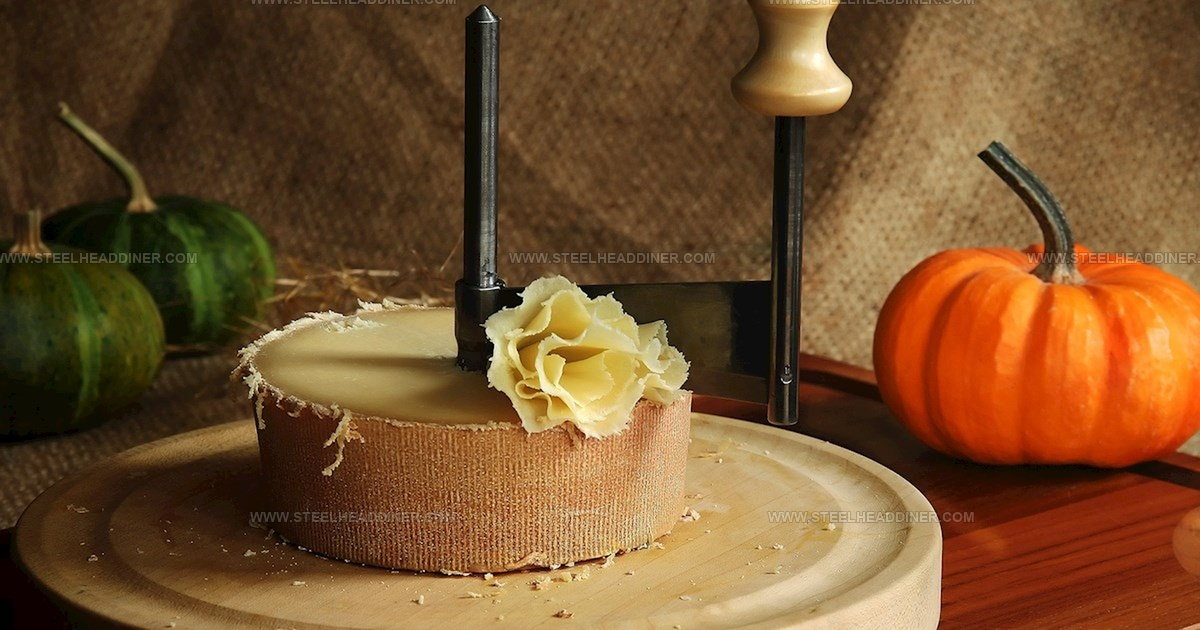
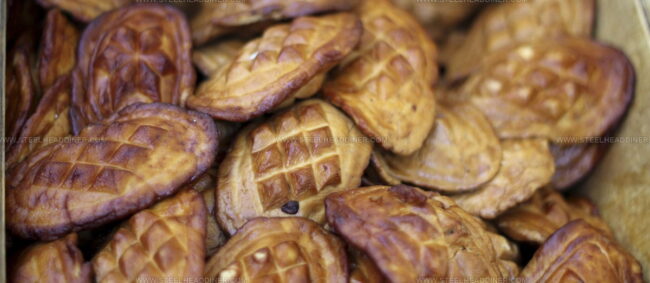
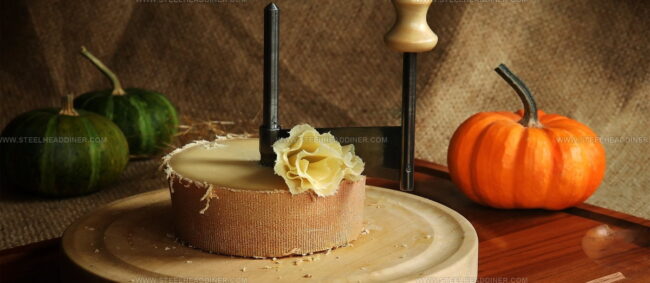
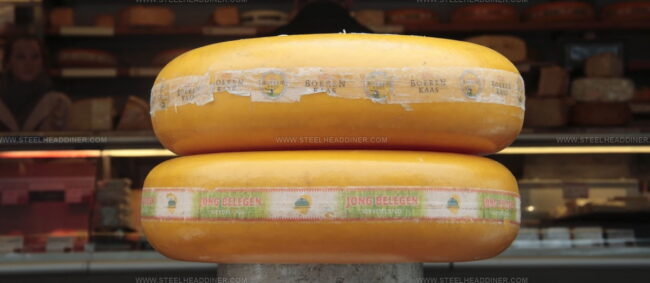
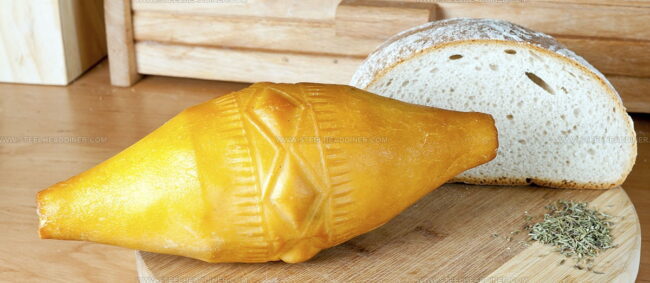
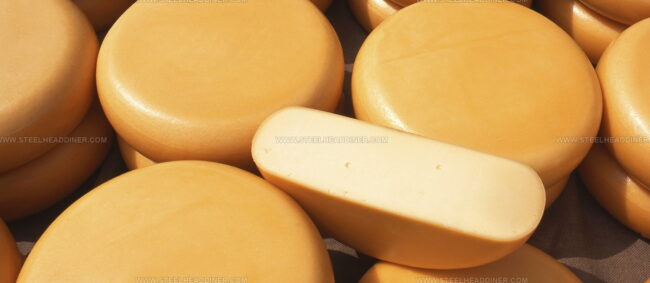
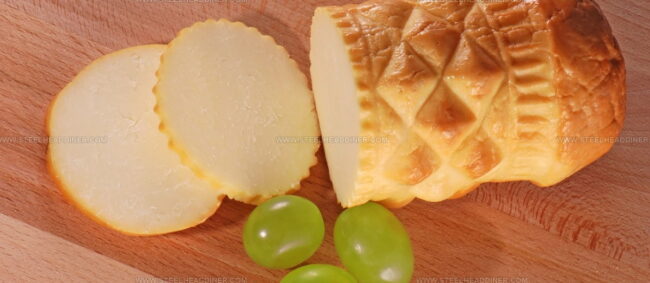
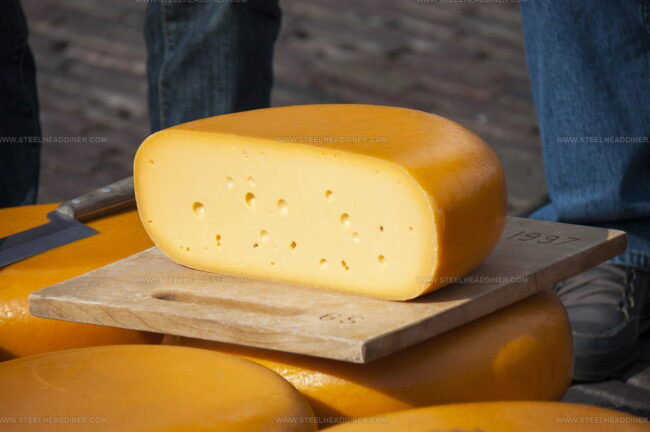
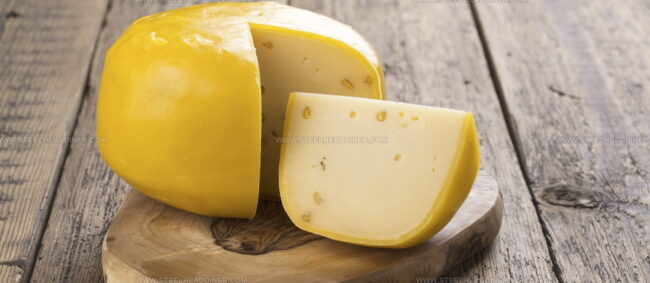
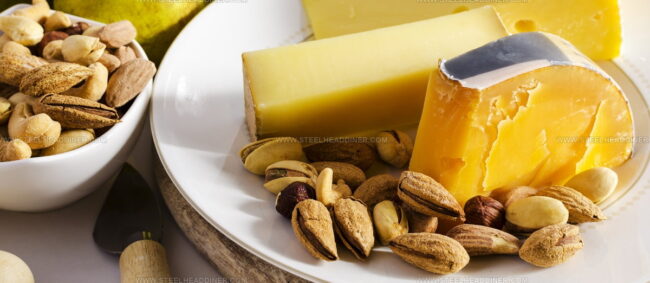
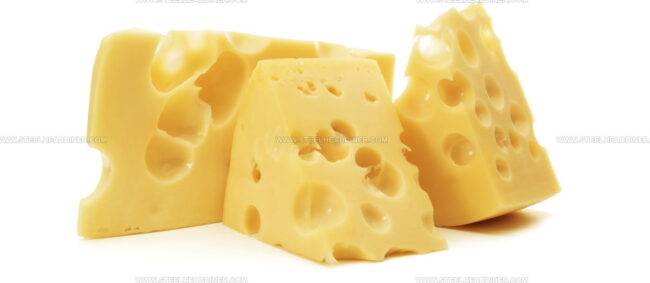
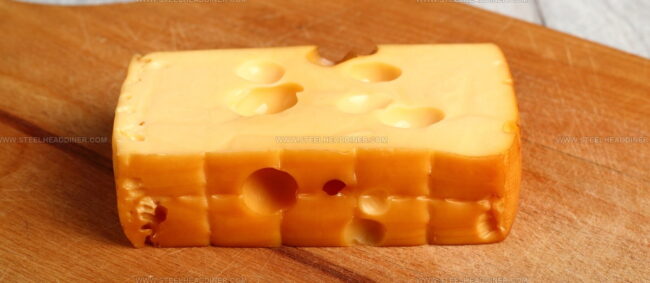
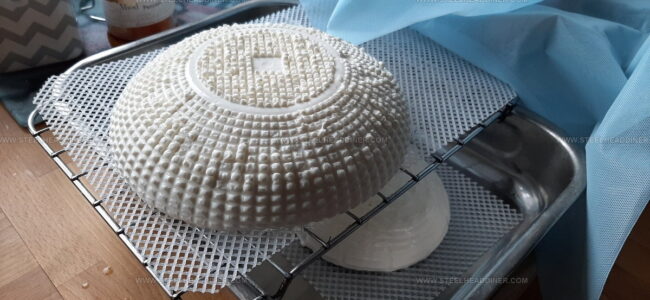
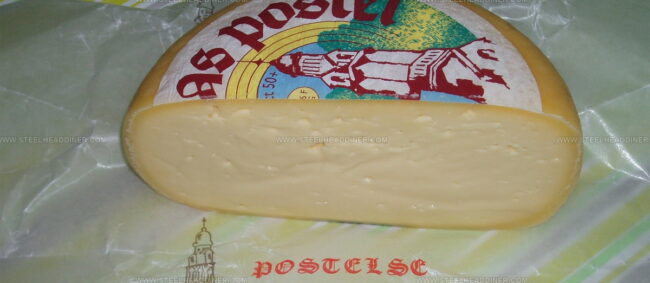
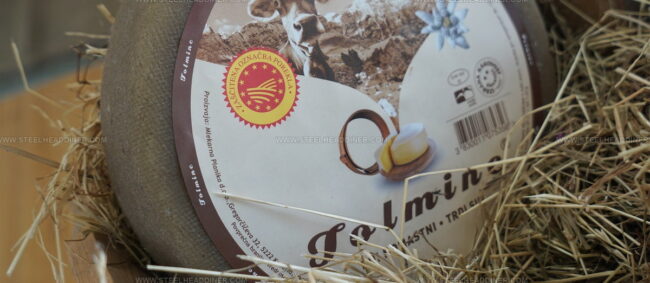
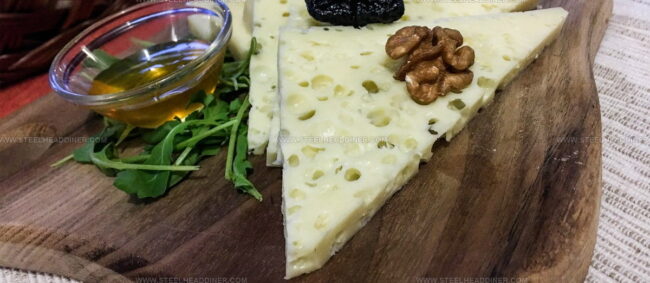
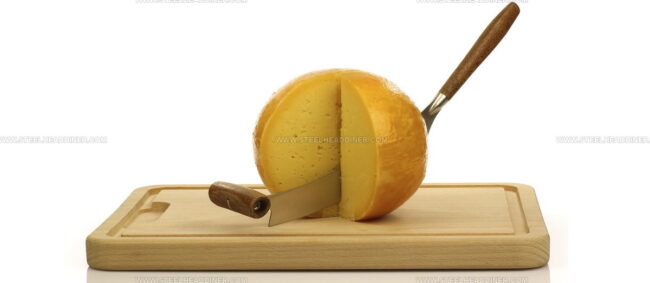
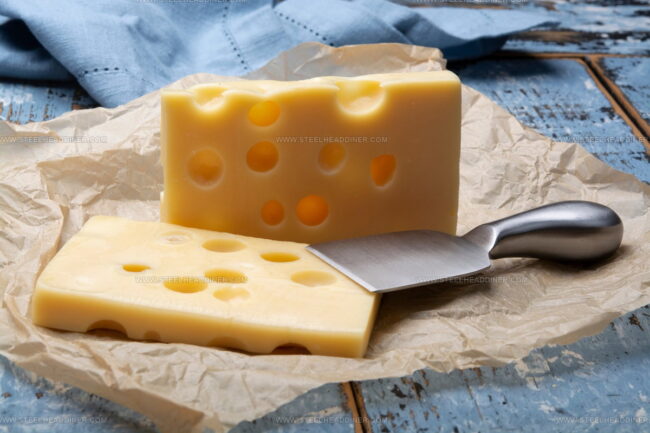
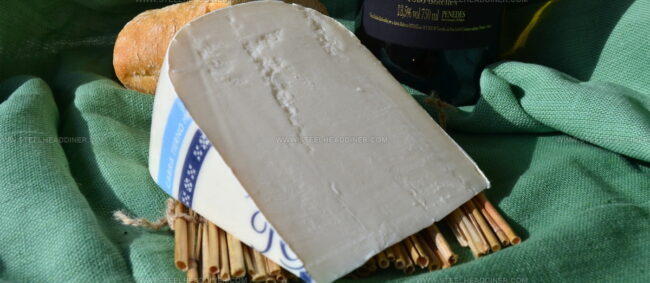
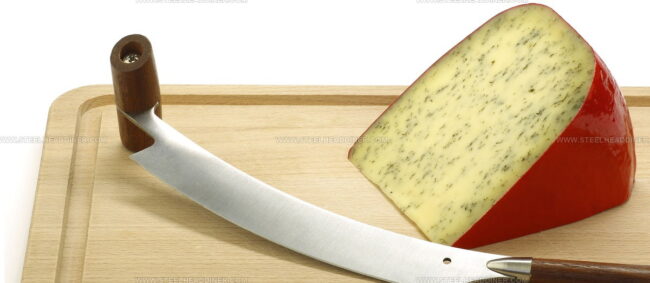
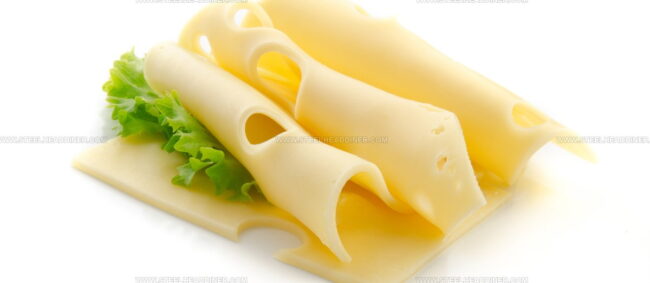
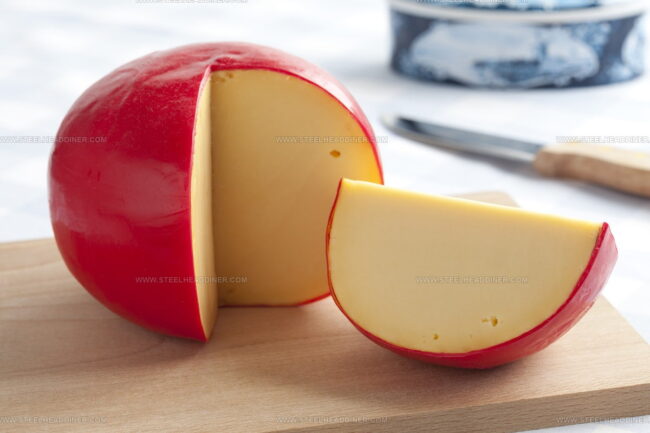
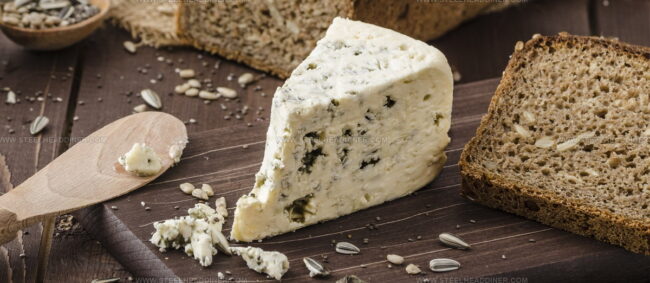
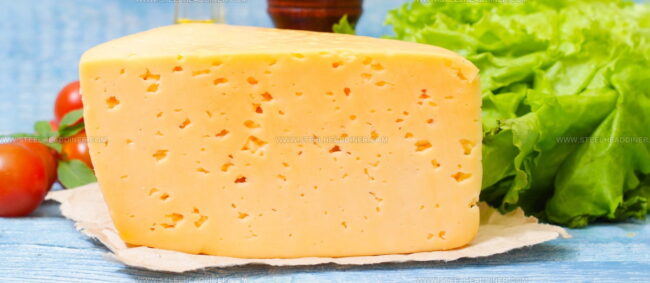
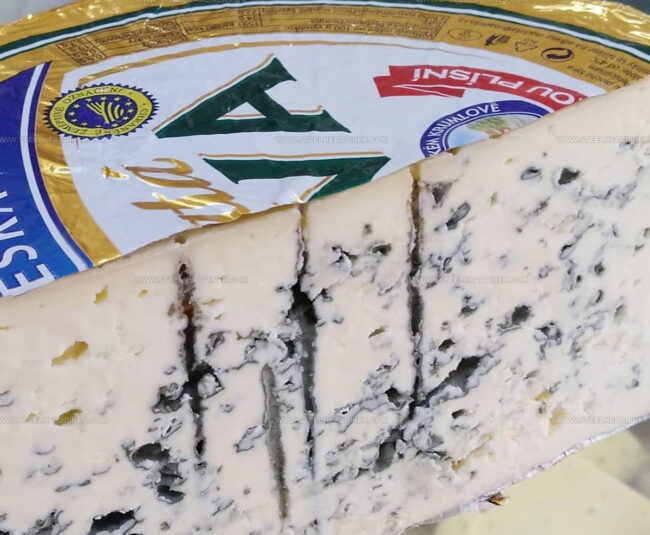
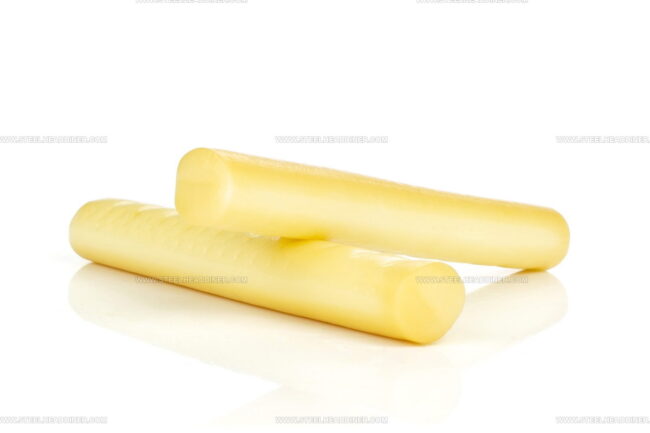
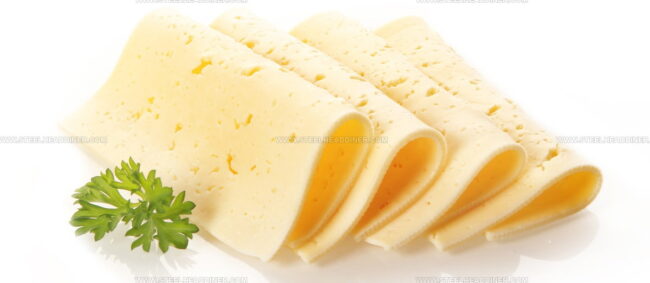
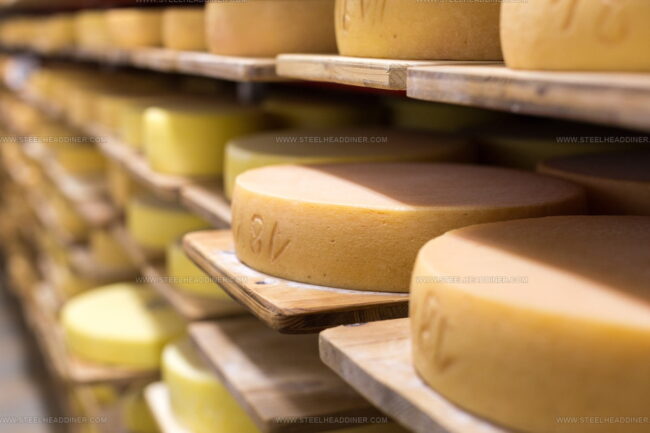
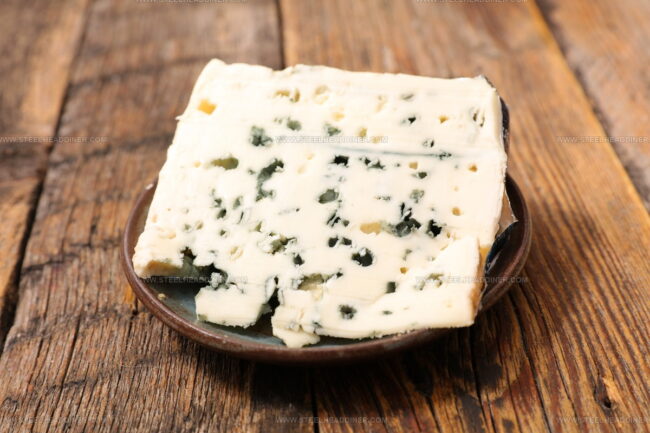
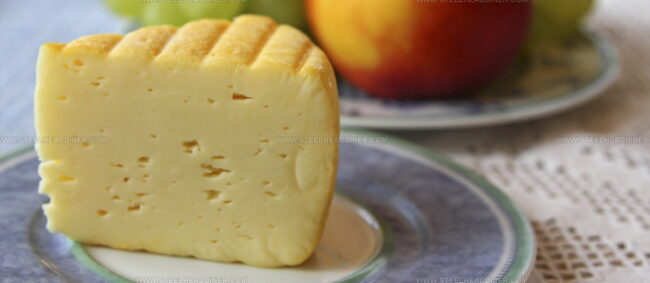
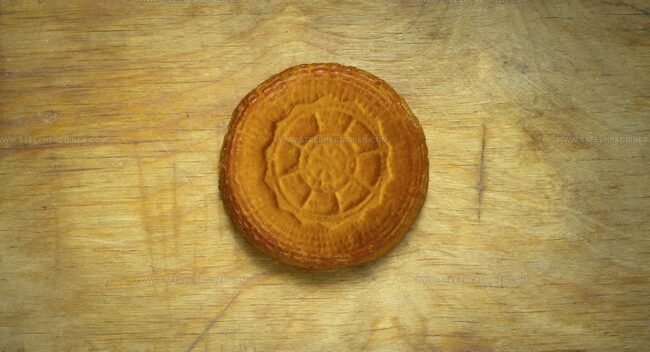
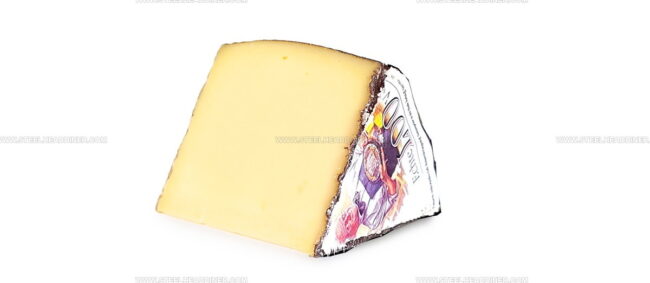
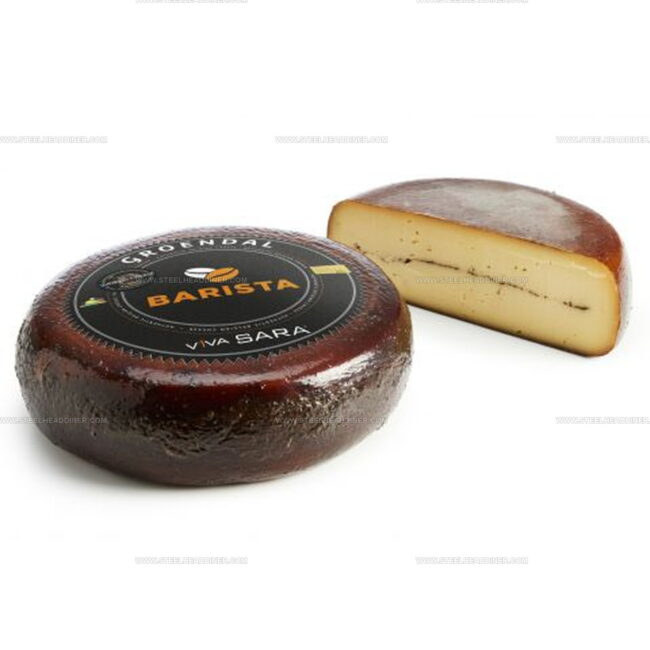
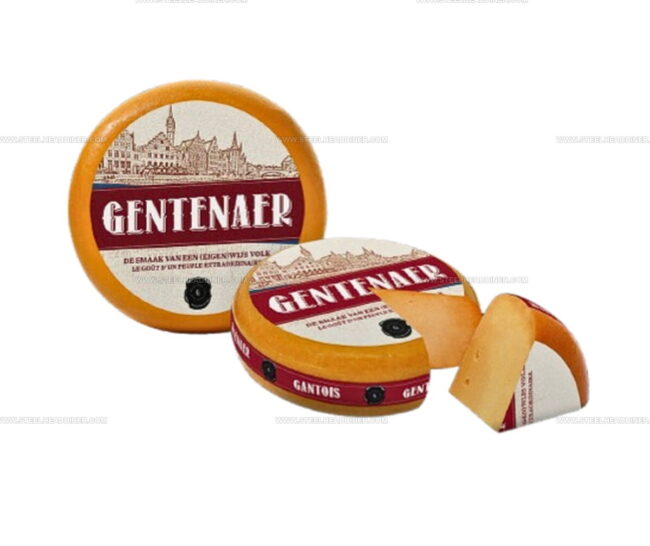
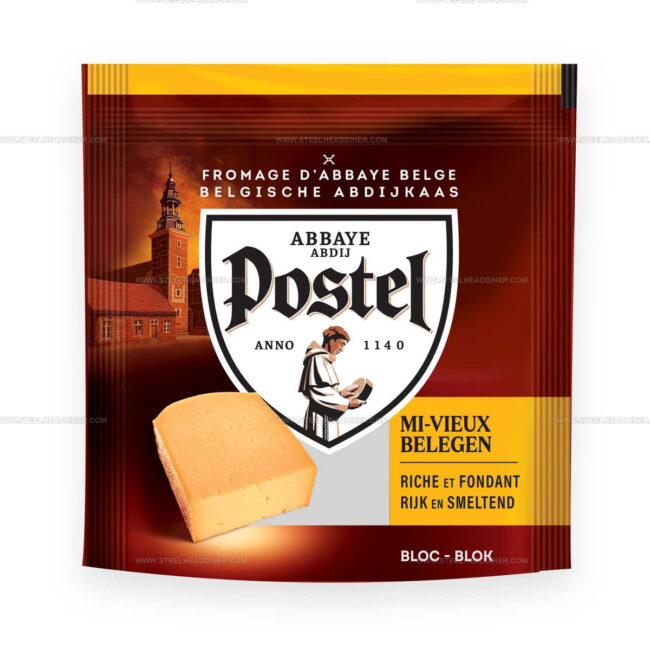
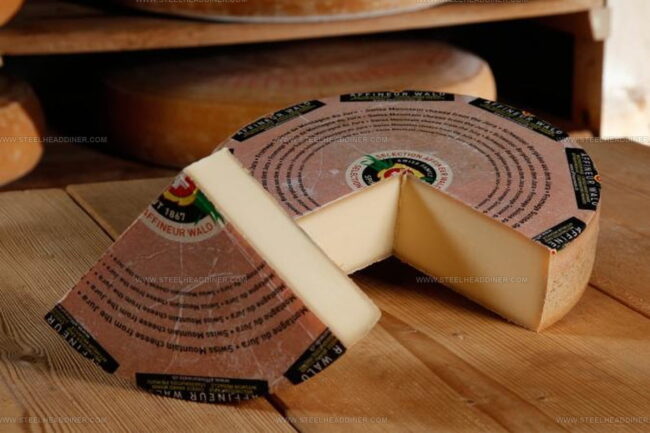
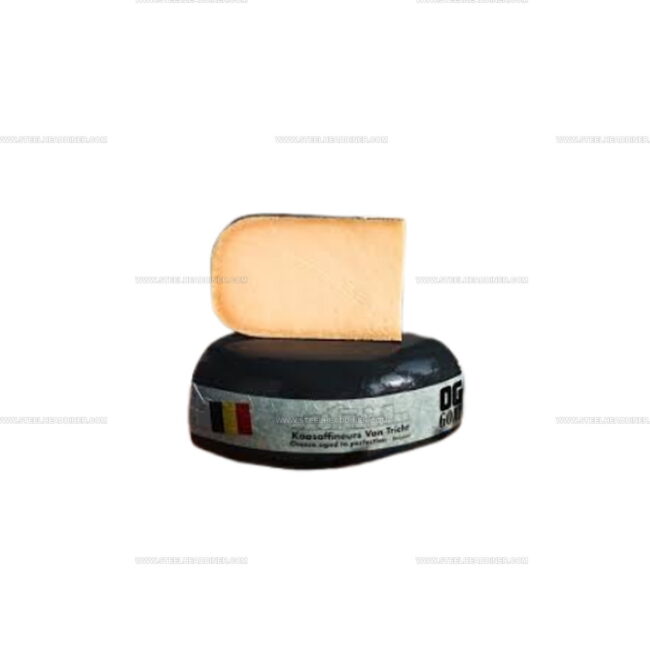
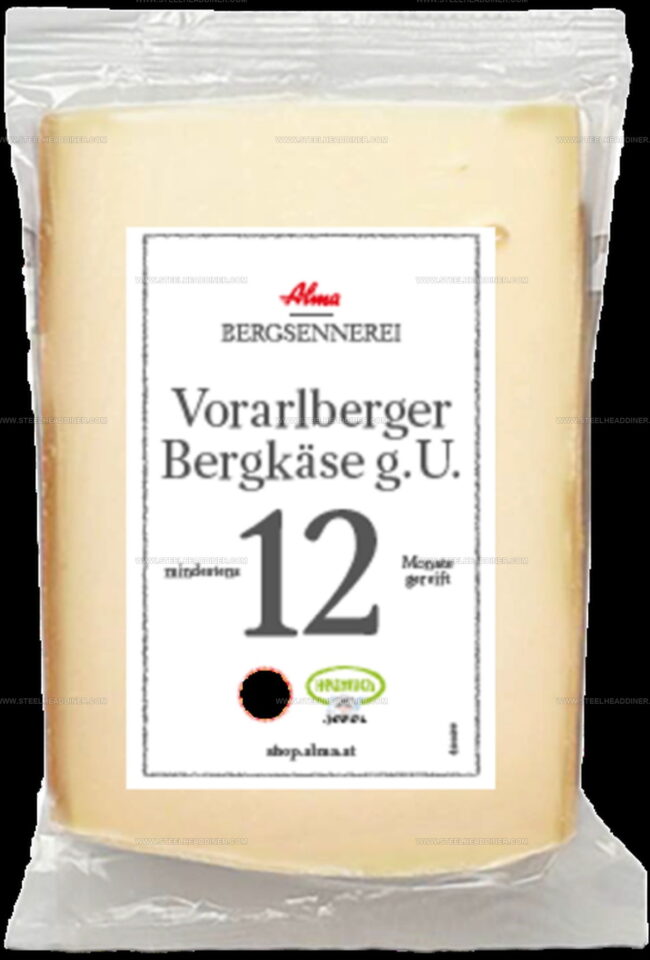
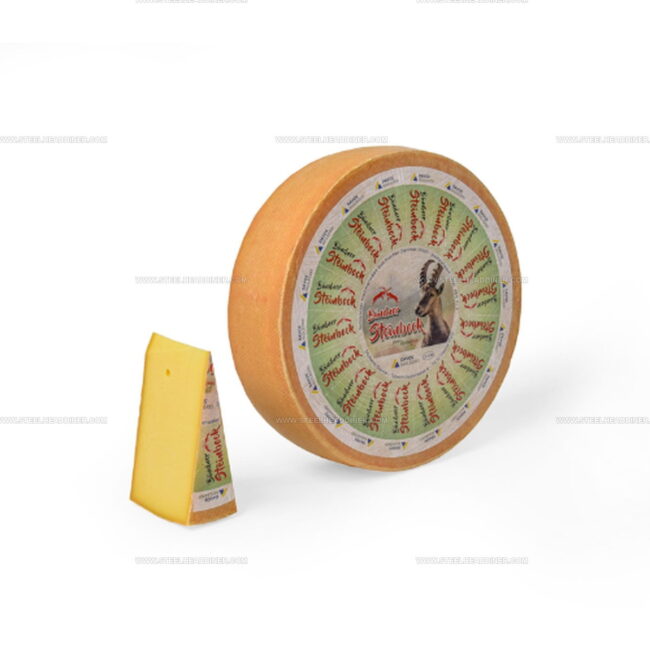
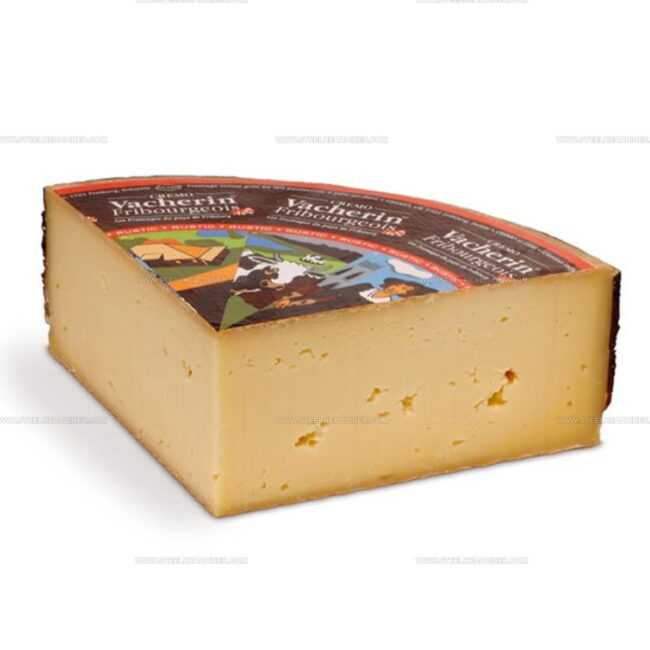
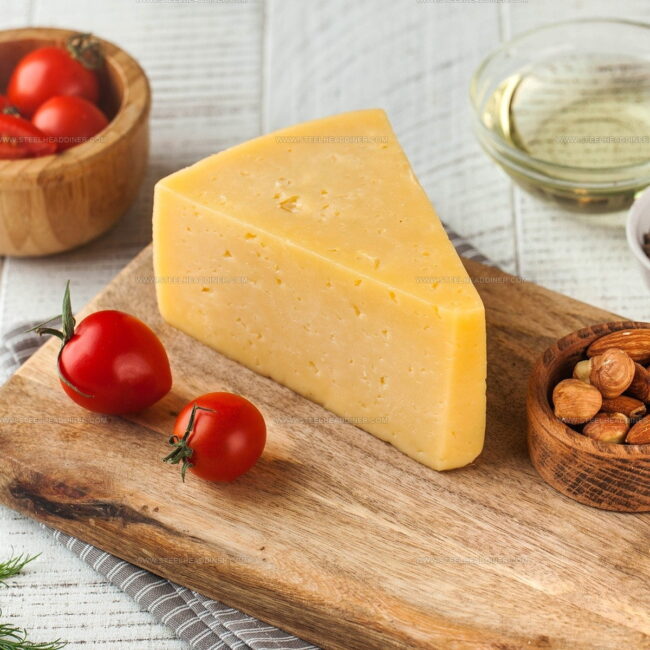
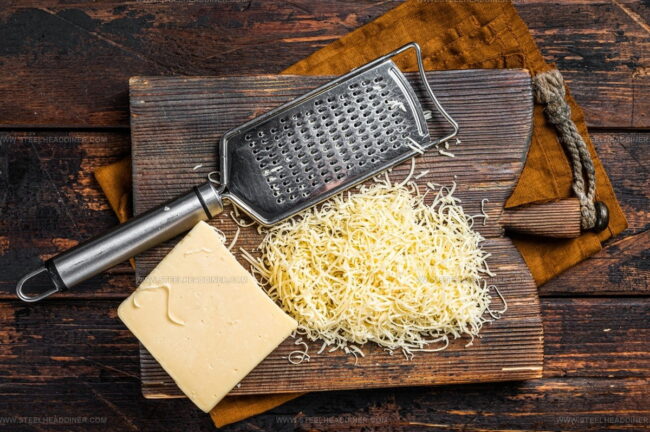
Jack Monroe
Founder & Recipe Innovator
Expertise
Pacific Northwest cuisine, Single-serving recipe development, Sustainable sourcing and cooking, Modern comfort food
Education
Brightwater
Associate of Applied Science in Culinary Arts
Focus: Sustainable cooking, seasonal ingredients, and food systems education
Jack grew up with a fishing rod in one hand and a cast-iron skillet in the other. After graduating from Brightwater: A Center for the Study of Food, he set out to prove that cooking for one could still taste like a feast.
Jack believes that food should feel real: fresh, fearless, and a little wild, just like the rivers he grew up around. For Jack, every single dish is a small adventure, and the best ones are the ones you can cook with heart, not hassle.